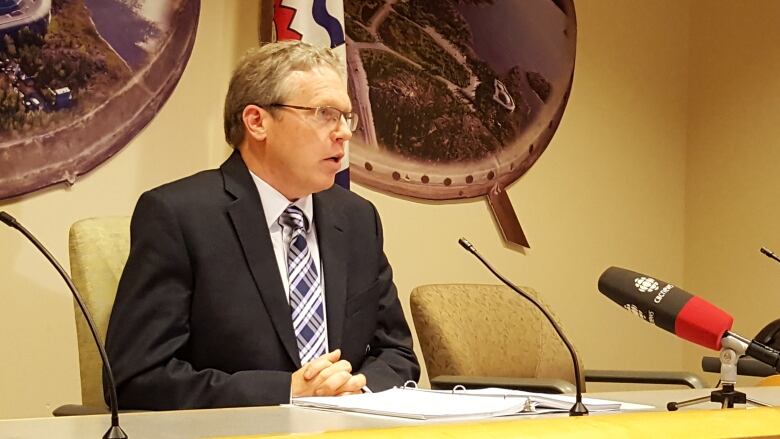N.W.T.'s monitoring of municipal services gets poor marks in auditor's report
MACA couldn't tell the auditors which communities had operating fire departments

The N.W.T. government does not have a good handle on the state of essential services in many communities and is not doing enough to assist those falling behind, an audit has found.
Though the communities provide essential services to their residents such as water, waste and fire protection, it's the territory's responsibility, through the Department of Municipal and Community Affairs, to monitor them to ensure they're meeting requirements and to provide support, such as training, when needed.
Fire protection, waste management and emergency preparedness planning all got poor marks in a report by the Auditor General of Canada that wastabled at the legislative assembly Tuesday.
Among the more disturbing findings was that MACA was unable to tell the auditors which communities had operating fire departments. The auditors had to piece that information together through aprocess of elimination and guesswork, using MACA's own newly-developed community accountability framework.
"We found the department knew very little about the state of fire protection in communities," said Glenn Wheeler, the lead auditor for the report.
Information that was lacking included which communities had departments that met standards and which had enough trained firefighters. The report says this was because a full assessment of the fire departments had not been done by MACA since the 2010-2011 fiscal year.
The report recommends immediate action to reassess fire departments as to whether they were meeting requirements under the Safety Act.
Emergency plans need updating
Other findings in the report include:
- Only 16 of 30 communities had a water treatment plant operator certified to the level of the plant in the community
- 25 of 30 communities had a licence to regulate management of the solid waste sites and sewage lagoons, but only 6 complied with the terms of their licence
- only 6 communities had a hazardous waste management plan
- 22 communities had emergency plans that required updating or validation and 1 community did not have a plan
The auditors did not reveal which communities weren't meeting requirements, as the audit's mandate extended only to MACA, not the municipalities.
Drinking water was the one area audited where MACA got an "adequate" mark (albeit with an asterisk). That was because auditors found it was the only area where the N.W.T. government had a good understanding of the situation in individual communities and had plans to address the deficiencies.
Collecting accurate data?
The report makes 13 recommendations in all, and the department has agreed to all of them.
Wheeler said this report echoes the findings of previous N.W.T. audits when it comes to the importance of departments collecting good information on which to base decisions.
"That remains a challenge for departments," he said, adding the lack of reliable data then makes it hard to make good program decisions.
Wheeler did praise MACA's new accountability framework in which communities report how they are managing their services and their finances, saying it "significantly advanced accountability and transparency."
But the auditors found that the department didn't do enough to verify if information being provided was accurate, given that some of the questions asked of communities were unclear and sometimes misunderstood.
If improved, the accountability framework "will help all communities going forward," Wheeler said.












_(720p).jpg)


 OFFICIAL HD MUSIC VIDEO.jpg)
.jpg)



























































































